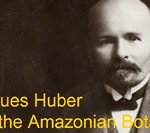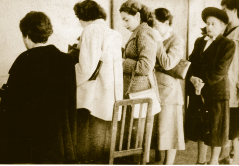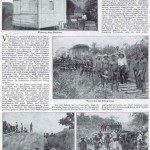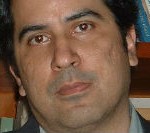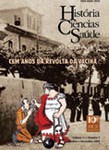November 2022
Marcos Cueto, Science editor of HCSM, published with Gabriel Lopes, “Braiding Public Health and Human Rights: AIDS, Activism, and International Agencies in Brazil, 1987–1996” Latin American Research Review (2022), 1–17 doi:10.1017/lar.2022.99. Published online: 02 November 2022
This article examines the emergence of a synergy that allowed the early development of what was once considered the best anti-AIDS program in the developing world. Initial responses to AIDS in Brazil during the 1980s and early 1990s were marked by a confrontation between activists concerned with human rights, and a government focusing on biomedical management of the epidemic.

On December 1st, 1983, World AIDS Day, activists and social movements participate in an act in Rio de Janeiro in support of the anti-AIDS campaign “Embrace solidarity”. Photo: Jornal do Brasil
After 1992, activists, medical researchers, government officials, international donors like the Ford Foundation, health officers, and multilateral agencies like the World Bank were galvanized to cooperate. This was a complex process of braiding knowledge and practices related to activism, science, public health, governance and philanthropy in which each constituency maintained its independence.

Foto: Acervo ABIA II National meeting of Aids NGOs. Porto Alegre, Brazil, 1989.
The result was a complex, holistic, and nuanced AIDS program. The process helped bridge the gap between knowledge and advocacy, generated public awareness, and was instrumental to reducing AIDS mortality developing local human resources and comprehensive policies.
The result was a complex, holistic, and nuanced AIDS program. The process helped bridge the gap between knowledge and advocacy, generated public awareness, and was instrumental to reducing AIDS mortality developing local human resources and comprehensive policies.Read about Aids in HCS-Manguinhos:
AIDS in historical perspective To mark the World AIDS Day, we have prepared a selection of articles, posts and stories that address different aspects of the history of AIDS, such as the decline of the AIDS program in Brazil, the successes and setbacks in the fight against Aids, public health campaigns, the response of international institutions and much more.
AIDS in museums and archives In recent years there has been a resurgence of museum exhibitions on the history of HIV and AIDS. This article by historian of medicine Manon S. Parry highlights some problems of this kind of exhibition.
The end of AIDS’ exceptionalism in Brazil The decline of the AIDS Programme in Brazil is the topic of a new article written by Marcos Cueto, Science editor of HCSM, and Gabriel Lopes Post-doctoral researcher at Casa Oswaldo Cruz / Fiocruz
A global player in the politics of Aids Marcos Cueto, science editor of HCSM, and Gabriel Lopes, postdoctoral researcher at Casa de Oswaldo Cruz (Fiocruz), explore the Brazilian participation in international debates on whether antiretroviral drugs were commodities or public goods.
Successes and setbacks in the fight against Aids The medical anthropologist Richard Parker, professor at Columbia University, examines the social and political aspects of HIV/AIDS in Latin America.





